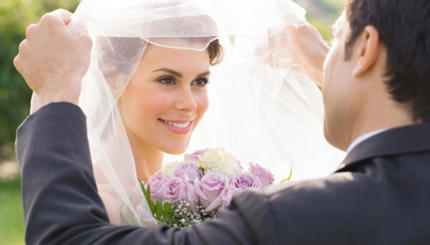By Education Fellow Reva Frankel
I grew up in a Modern Orthodox community, so when I came to work at the ISJL, I knew that I would need to modify my Shabbat observance. During my interview, I remember thinking that my compromises would be well justified by the chance to share meaningful Jewish experiences with our partner communities. Though I anticipated that this would be difficult, I have been surprised to realize that changing my practice is the easy part. The biggest challenges for me have been the contradictions between my new experiences and the mindset that I developed in day school—beliefs that I never realized were so ingrained in my thought.

The biggest struggle has been reconciling my views on intermarriage. The belief in my community at home, at least among my teachers, is that intermarrying is the worst thing a Jew can do. It is better to separate completely from those who have intermarried, become more insular, and focus on perpetuating Judaism, than it is to accept such a transgression and risk the erosion of traditional Jewish identity and practice.
I don’t think I ever truly believed that this was the best response to intermarriage, but I realized one day during a webinar with Rabbi Kerry Olitzky from the Jewish Outreach Institute that I had been deeply affected by what I heard when I was younger. My mind latched onto Rabbi Olitzky’s words, understanding that the way to include Jews in Judaism is to accept those who intermarry, embrace their spouses and help them teach their children how to be Jewish. My body, however, was tense and uncomfortable. The thought kept cropping up—that intermarriage will bring about the end of Judaism.
I understand why the community I grew up in was so insular. It is easy to believe other Jews are less Jewish if you don’t know them, haven’t spoken to them, haven’t seen them be Jewish. On a recent community visit, I spent the weekend with a family in which only the father is
halachically Jewish
. The mother, who referred to her own family as interfaith, and I had many conversations over the weekend about religion and Judaism. Three years ago this woman knew very little about Judaism; now she is the only teacher in her children’s religious school. She has gone out of her way to understand Judaism and figure out the best way to teach it to her children as well as the other children in the community. During one of our conversations she again referred to her family as interfaith. We both laughed out loud, recognizing how absurd it was that she should still separate herself out, still hesitate to claim a stake in the Jewish faith. I was impressed with this woman and her awareness that some people just could not get over the fact that she is not halachically Jewish.
I understand the reasoning behind halachic Judaism. I understand that Orthodox conversion is important for halachic and traditional reasons. However, I cannot accept the stark lines we draw and the barriers we place between different factions of what is supposed to be one people. I don’t think that the Orthodox should change their standards and tell their children it is OK to marry anyone they want, but now I also don’t believe that people should only be considered Jewish if their mother is Jewish or they had a conversion with a beit din and went in the
mikvah
.
I knew that spending two years at the ISJL would challenge me, and truthfully I was looking to be challenged. My experiences on the road have fundamentally changed the way I think and who I am. Now I feel like I am trying to live simultaneously in two worlds, but I am not sure if that is really possible.
What are your thoughts on pluralism, and the “multiple worlds” of Judaism?
Shabbat
Pronounced: shuh-BAHT or shah-BAHT, Origin: Hebrew, the Sabbath, from sundown Friday to sundown Saturday.


